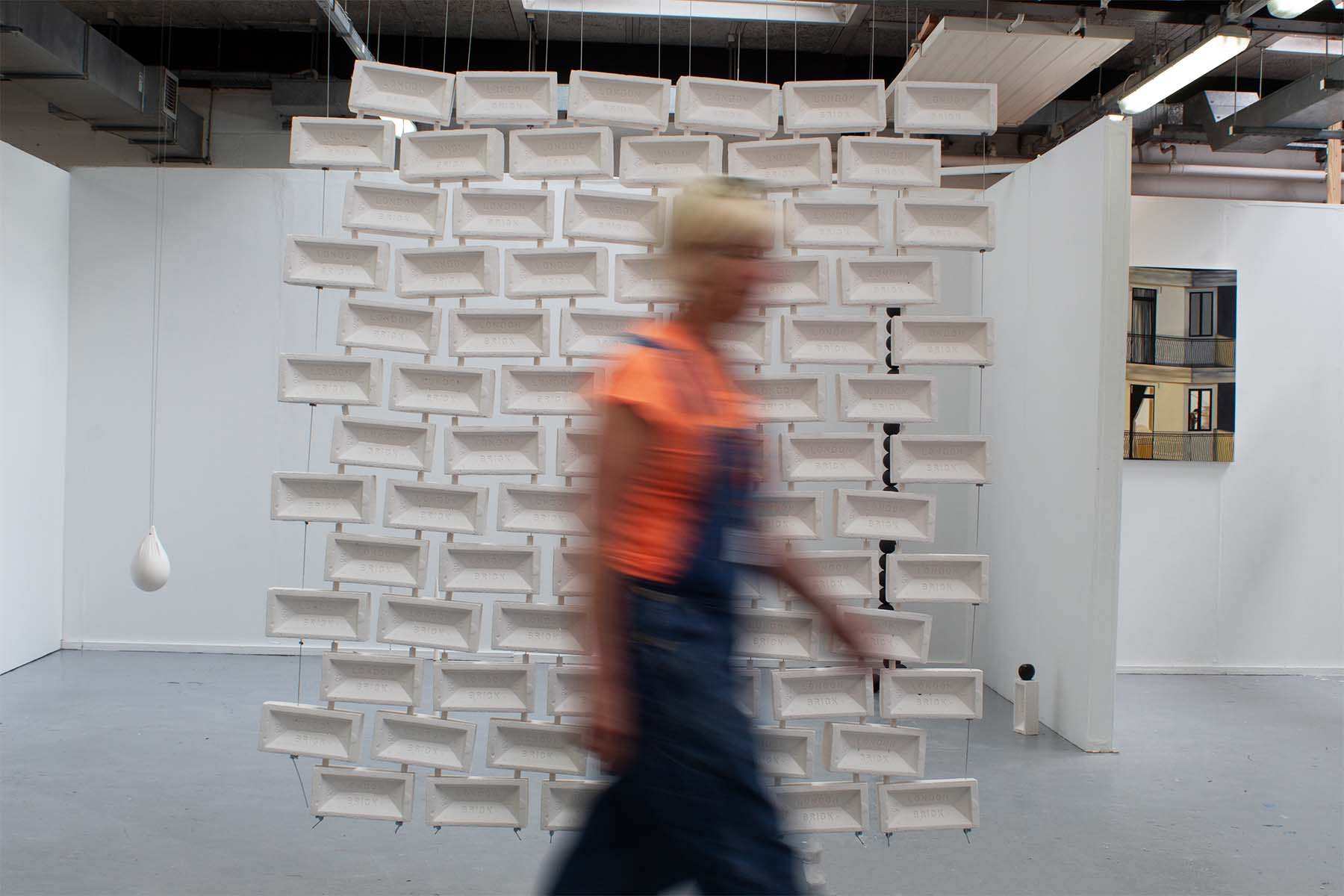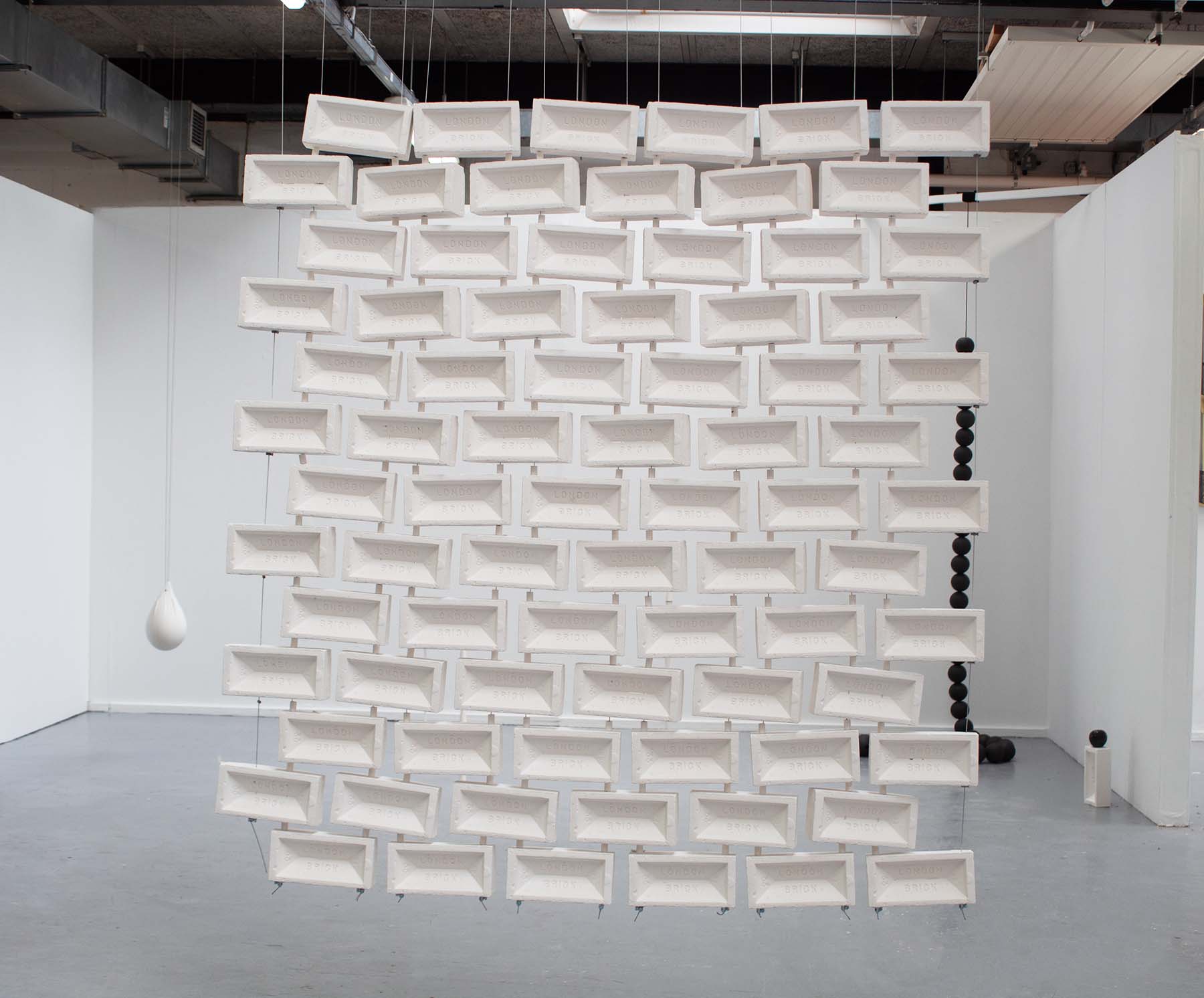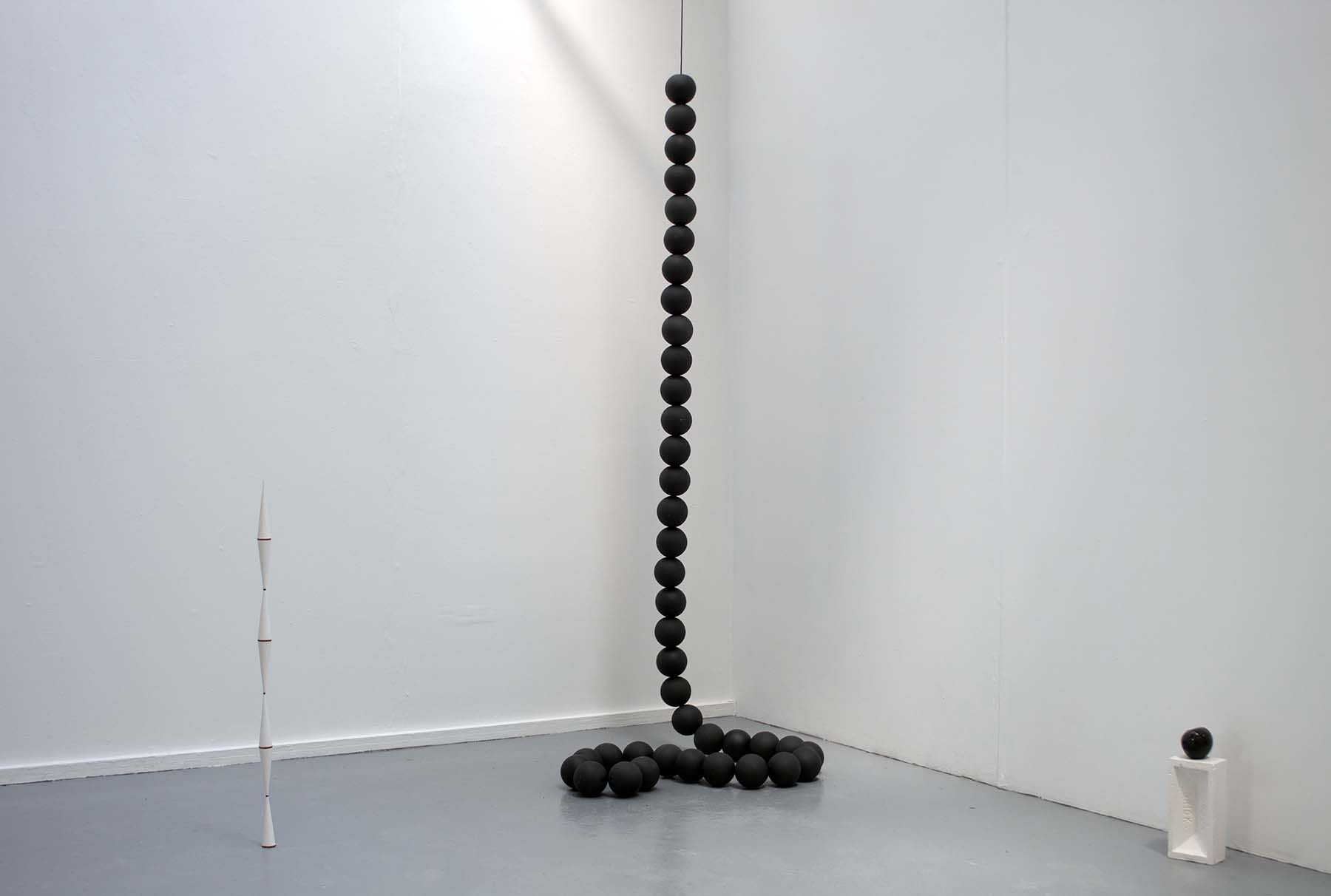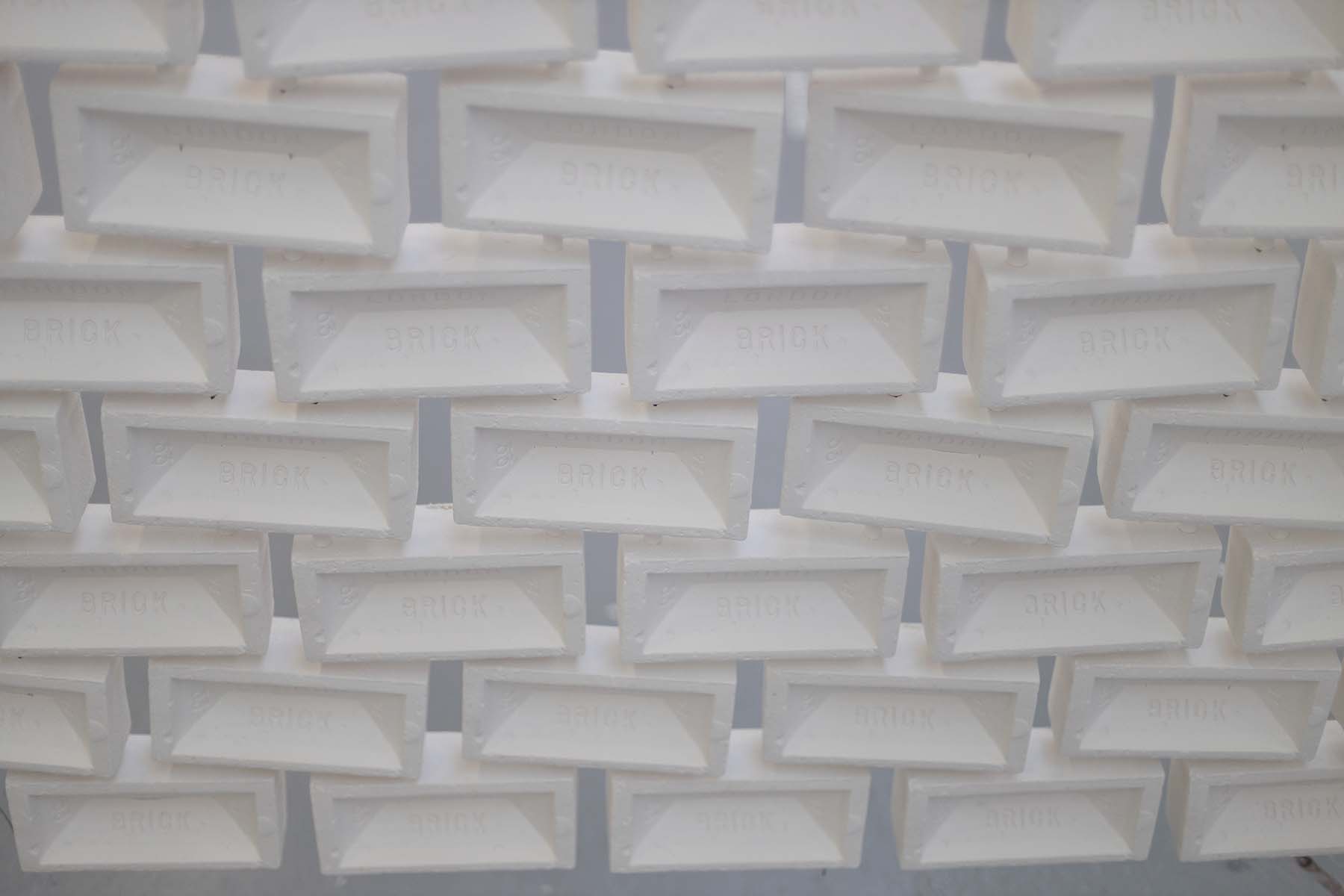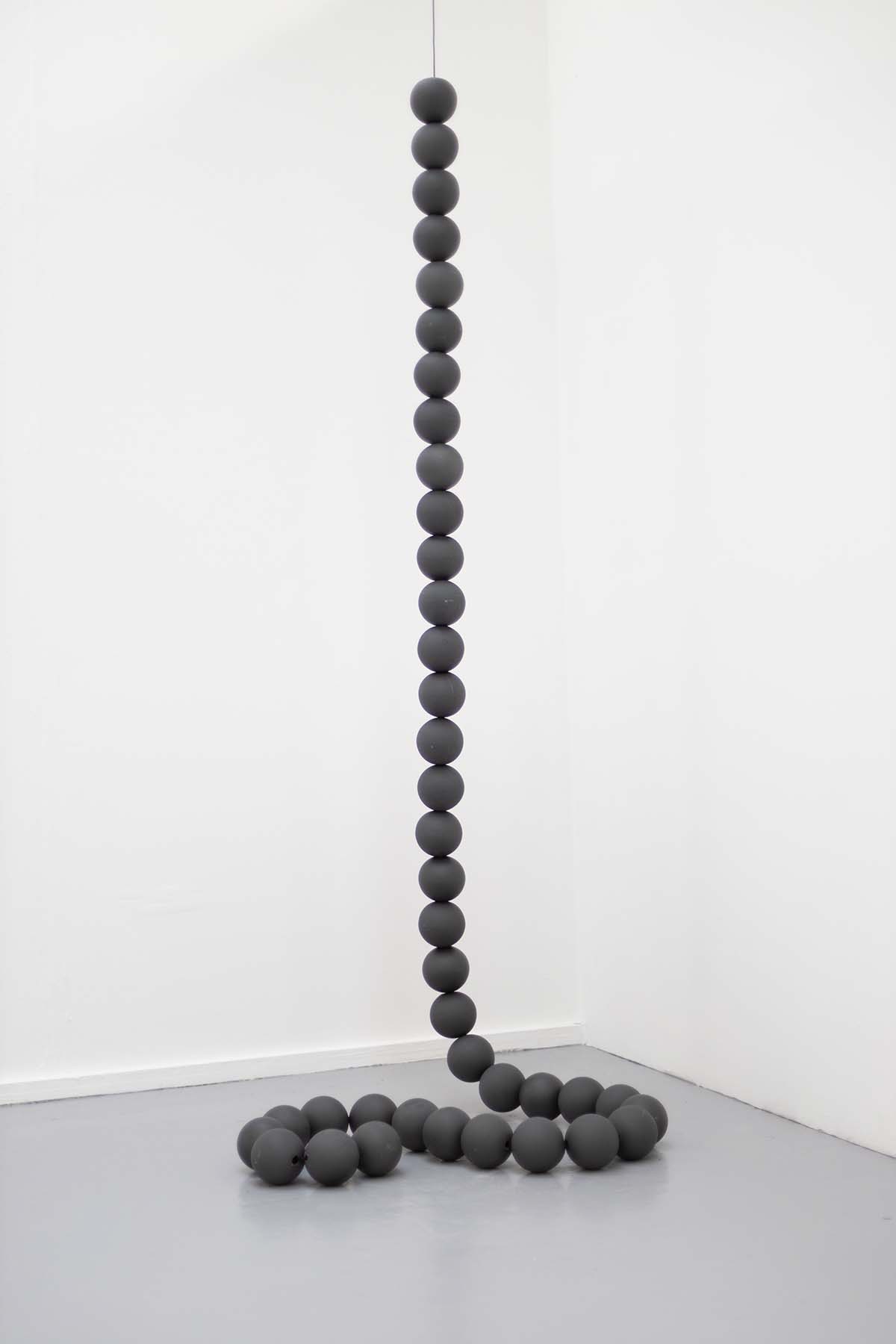I am interested in creating spaces that invite stillness and silence. Making objects and sculptures that create a pause; a moment before recognition and words arise to name and possibly limit the experience of that work. I am keen to amplify a space of not-knowing and explore what it might hold as potential for new ways of thinking and being in the world. To perhaps “smuggle a trace of something infinitely unknowable within the parameters of finite form.” I am also experimenting with illusionary effects as a way to introduce a sense of the uncanny and find out if I can exaggerate that feeling.
Repetition plays a large part in my practice and I use casting as a way to achieve it. Inspired by Rachel Whiteread and Mária Bartuszová, I enjoy casting in both plaster and clay slip. I have found that repetition creates an opportunity to pay greater attention both in the making and the viewing. It also offers a sense of calm as there is no competing information, it is simply the same thing being said over and over again.
I tend to work with a small range of materials: plaster, clay, paper and wood, and I am always interested in exploring ways to see, hear and feel the essence of the materials I am working with. By stretching, moulding, sanding, massaging, draping, allowing and hugging materials, can I enable them to reveal something more of themselves? Can I hear what Jane Bennett describes as the ‘call of the object’ ? And is repetition a way to amplify that call? I am also curious about the possibilities of translating our viewing into feeling, or our touch into understanding and what those interactions might say about the objects and about ourselves.
I have wanted to create a larger work for sometime and the suspended brick wall allowed me to do so. My attention had been caught by a brick from a local brickwork (which closed in 1972) and I was curious about how oppositional this brick was to the rest of my practice: dense, heavy, solid, fixed, purposeful. I began to think about the point at which a functional object loses its function and therefore becomes conventionally useless. I questioned whether I could keep the form and subvert the function? And how far I could stretch that abstraction? In a paradigm where usefulness, productivity and purpose hold the superior position, what happens when an object is none of those things. And so, a brick made of plaster, a brick that is hollow, a brick that is white and fragile and useless materialised. The abstraction of a brick led to the abstraction of a wall. A wall that is fluid, floats, is unstable, ungrounded, insecure, see-through. The idea of a grout-less, suspended wall began to take shape.
There is often a theme of precariousness running through my practice which links to my research and written theory around women’s inequality and the violence that is still perpetrated against them. I was surprised at how this thread managed to appear in something as un-precarious as a wall.

